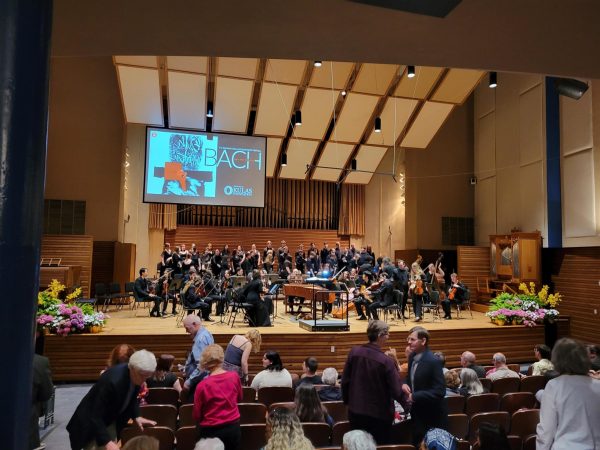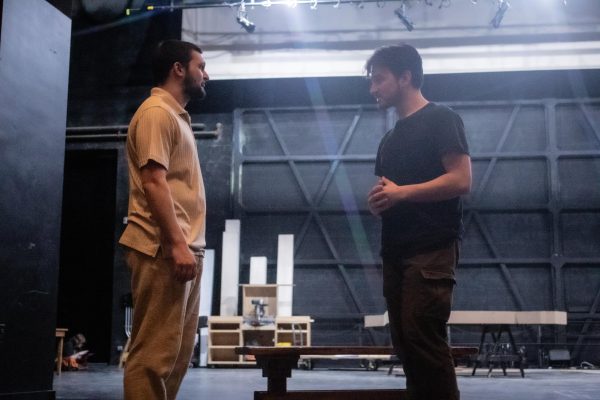Observatory lecture to explore evolution of the universe
An upcoming lecture at BW will address some of the biggest questions in the universe.
Dr. Glen Starkman, a theoretical physicist and distinguished university professor at Case Western Reserve University, will speak about issues in cosmology, the study of the evolution of the universe. The lecture, “How Cosmology Has Challenged the Standard Model,” will be presented in the Main Stage Theater in the Kleist Center for Art and Drama on Thursday, Oct. 11 at 7:30 p.m.
The “standard model” referred to in the lecture’s title is the standard model of particle physics, said Gary Kader, director of the Burrell Observatory. The standard model is a theory that has been used to explain and predict much of what scientists know about the interactions of subatomic particles.
The standard model should be able to be “expanded out” to explain and accommodate cosmology, but there are “two major issues” in cosmology that the standard model doesn’t account for, said Kader. These issues will be addressed in Starkman’s lecture.
The first issue is that the universe is expanding at a faster rate than the standard model predicted.
“There has to be this force that’s blowing the universe apart,” said Kader. “We’re very creative at naming these things, so we call it dark energy.”
The second issue is that there is more mass in the universe than the standard model accounts for. This “missing mass” is called dark matter, said Kader.
“We’re reasonably sure that dark matter isn’t the kind of matter that you see around you, protons and neutrons and that sort of thing,” said Kader. “We think it’s other kinds of ‘stuff.’”
Though these issues present challenges to the standard model, they do not discount it, said Kader.
“It doesn’t show that the standard model is wrong, it just means that there’s more for us to learn,” he said.
Starkman’s research involves trying to use the standard model to solve the question of dark matter. In his lecture, he will address these issues in cosmology as they relate to the standard model.
Though the topic of the lecture is “esoteric,” Kader said the talk is intended for a general audience. The lecture will last an hour, and there will be a question and answer period to follow.
After the lecture, the observatory will be open for public viewing, said Kader.
“[The observatory will] be open whether it’s clear or not,” Kader said. “And if [people] just want to come to the observatory, they’re welcome to come to the observatory, probably around 8:30, quarter to nine.”
The event is the second in the Burrell Observatory Open House series, which puts on three lectures each semester. Since its inception in 2007, the series has been “very, very popular,” said Kader. Due to the series’ popularity, the events are ticketed, though they are free for everyone. Tickets can be obtained at bw.edu/tickets.
In addition to the open house events, Kader said he occasionally opens up the observatory for viewing to campus or to the general public. Students who are interested in information about observatory events can join the “Observatory” organization on BlackBoard.
The Exponent is looking for financial contributions to support our staff and our newsroom in producing high-quality, well-reported and accurate journalism. Thank you for taking the time to consider supporting our student journalists.












































